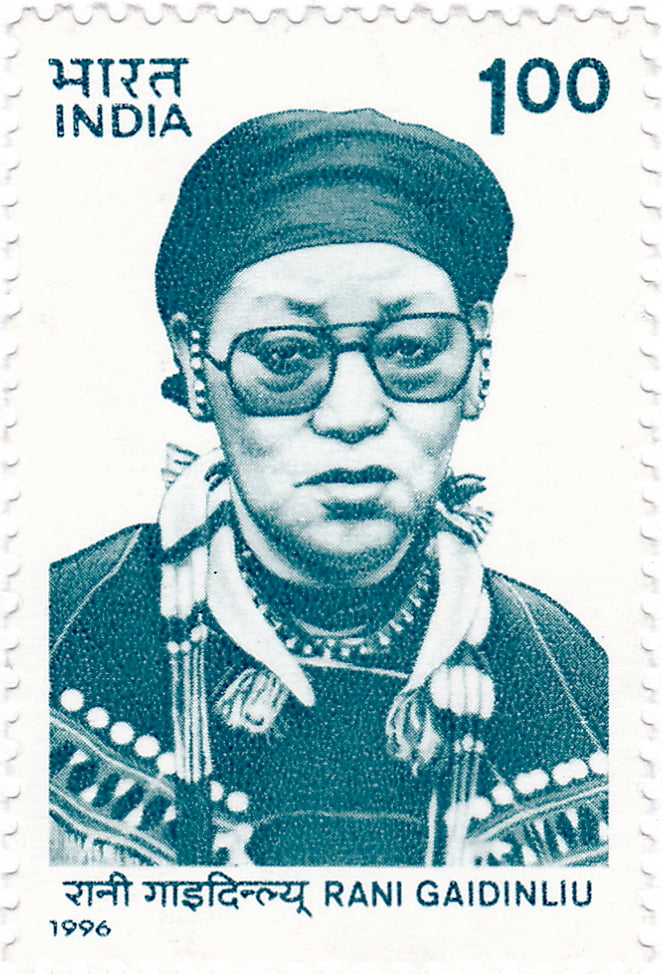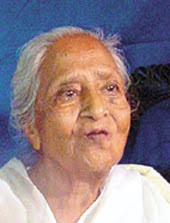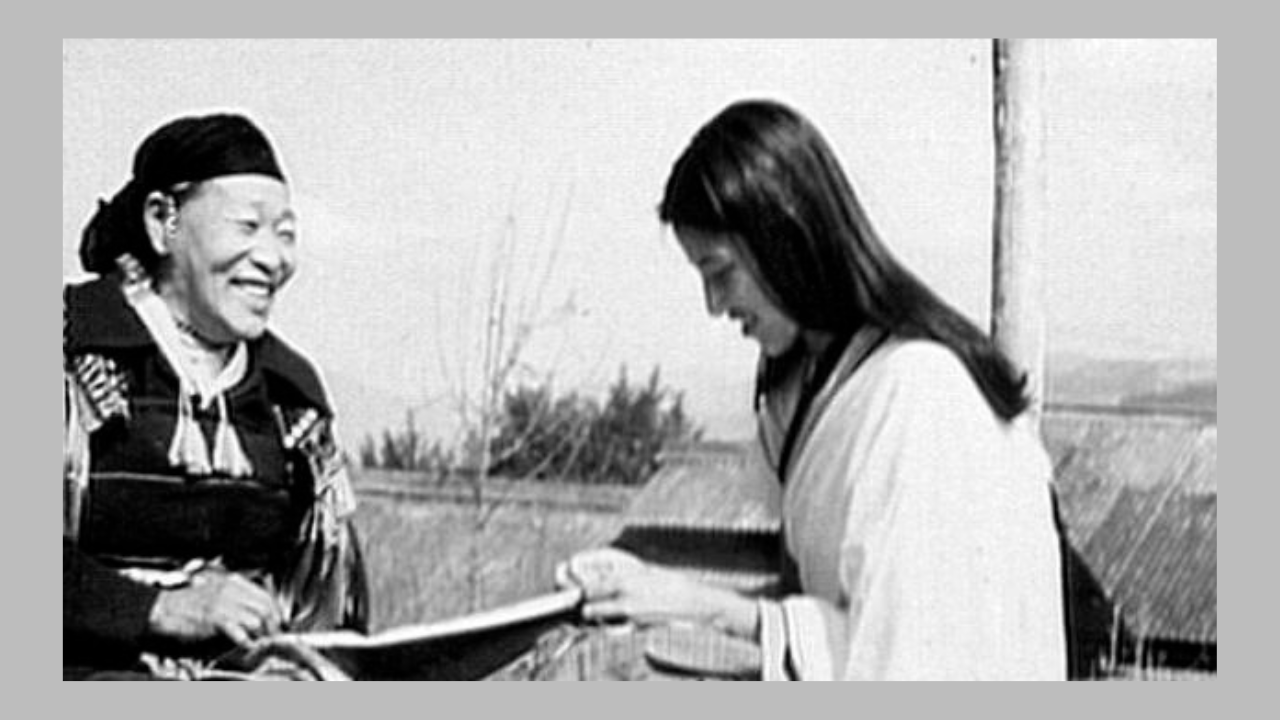India’s history is woven with stories of remarkable women who, despite their significant contributions, remain obscured by the shadows of time. In the North Eastern region of India, a land of diverse cultures and ethnicities, the narratives of women who have left an indelible imprint on history are often preserved through oral traditions yet their impact on the historical fabric of the country is profound.
Three such women from the North East are Rani Gaidinliu, Binodini Devi and Indira Miri, who carry a profound legacy of empowerment and conviction, stories that have been passed down orally through many generations and continue to live with us today.
Rani Gaidinliu
One such story is that of Rani Gaidinliu, the warrior queen of Nagaland, who emerges as a symbol of resistance against British colonial rule. Born in 1915 in the village of Longkao, Gaidinliu’s early years were marked by the rich cultural heritage of her Naga tribe. At a tender age, she was drawn to the Heraka religious movement, where her mystical visions and spiritual fervour earned her the status of a revered leader.
Gaidinliu’s unwavering commitment to her people and their cause led her to spearhead an armed struggle against the British, advocating fervently for Naga independence from colonial rule.

In 1932, at just 16 years of age, Gaidinliu’s fearless activism caught the attention of the British authorities, leading to her arrest and subsequent sentencing to life imprisonment. Despite facing incarceration at such a young age, Gaidinliu remained steadfast in her convictions, becoming a symbol of resilience and defiance for her people. Her courage and determination in the face of adversity inspired generations of Nagas to continue their fight for freedom and self-determination, especially women.
While Gaidinliu’s physical presence may have been confined within the walls of a prison cell, her spirit and legacy endured in the hearts and minds of the Nagas. Through oral narratives passed down from generation to generation, Gaidinliu’s story continued to be celebrated as a symbol of the indomitable spirit of the Naga people and their struggle for justice and sovereignty.
While Gaidinliu’s physical presence may have been confined within the walls of a prison cell, her spirit and legacy endured in the hearts and minds of the Nagas. Through oral narratives passed down from generation to generation, Gaidinliu’s story continued to be celebrated as a symbol of the indomitable spirit of the Naga people and their struggle for justice and sovereignty.
Gaidinliu’s legacy extends far beyond her role as a freedom fighter; she is also revered as a cultural icon and a champion of indigenous rights.
In recent years, there has been a renewed interest in Gaidinliu’s life and legacy, with efforts underway to preserve and commemorate her contributions to the struggle for Indian independence. Museums, monuments, and cultural centres dedicated to her memory have been established across Nagaland, ensuring that her story continues to inspire future generations.
Binodini Devi
Maharaj Kumari Binodini Devi, also known as Rajkumari Binodini Devi, was a distinguished figure in Manipuri literature, renowned for her literary contributions and cultural activism. Born into the royal family of Manipur in 1922, she grew up amidst a rich cultural milieu that deeply influenced her worldview and artistic sensibilities.

From a young age, Binodini Devi displayed a keen interest in literature and the arts, nurtured by the vibrant cultural traditions of Manipur. She received a comprehensive education, both in traditional Manipuri arts and modern academic disciplines, which equipped her with the skills and knowledge to become a prolific writer and cultural ambassador for Manipuri society.
Binodini Devi’s literary prowess blossomed in the post-independence era, where she emerged as a unique and inspiring voice in Manipuri literature. Her writing reflected a deep reverence for Manipuri culture, mythology, and folklore, weaving together themes of tradition, modernity, and social consciousness. Through her poetry, prose, and plays, she sought to capture the essence of Manipuri identity and articulate the aspirations of its people.
One of Binodini Devi’s most notable works is “Nongmaithem Leima,” a seminal novel that explores the complexities of love, sacrifice, and societal expectations in Manipuri society. Published in 1955, the novel remains a classic of Manipuri literature, celebrated for its evocative storytelling and nuanced portrayal of human emotions.
In addition to her literary achievements, Binodini Devi was a passionate advocate for cultural preservation and revival. She recognised the importance of safeguarding Manipur’s cultural heritage in the face of modernisation and globalisation and worked tirelessly to promote traditional art forms, music, dance, and theatre.
Binodini Devi’s contributions to Manipuri literature and culture were recognised with numerous accolades and honours, including the Sahitya Akademi Award, India’s highest literary honour, for her outstanding contributions to Manipuri literature. She was also appointed as the Chairperson of the Manipur State Kala Akademi, where she played a key role in promoting the arts and nurturing young talent.
Beyond her literary and cultural achievements, Binodini Devi was also known for her philanthropic endeavours and social activism. She championed causes related to women’s empowerment, education, healthcare, and conservation, striving to create a more equitable and inclusive society for the people of Manipur.
Binodini Devi’s legacy continues to inspire generations of writers, artists, and cultural enthusiasts in Manipur and beyond. Her timeless literary works, coupled with her unwavering commitment to preserving and promoting Manipuri culture, ensure that her influence will endure for generations to come. As Manipur’s literary luminary and cultural icon, Maharaj Kumari Binodini Devi remains a cherished figure in the hearts and minds of the people, embodying the spirit of creativity, resilience, and cultural pride.
Indira Miri
Indira Miri, an inspiring educationist from Assam, was born in 1910, and her life’s work was dedicated to promoting education, particularly for girls. Her pioneering efforts left a deep mark on the educational landscape of Assam, culminating in the establishment of the first women’s college in the region, the Indira Miri Girls’ College in Tezpur. Throughout her illustrious career, Miri fervently believed in the transformative power of education and tirelessly advocated for equal opportunities for women in academia. Despite her monumental contributions, Miri’s story often remains confined to local narratives and oral histories, overshadowed by more prominent figures in Indian education.

Born into a society where women’s education was often neglected, Indira Miri defied societal norms and expectations from an early age. Recognising the importance of education in empowering individuals and uplifting communities, Miri made it her life’s mission to break down barriers to education, especially for girls. With unwavering determination and a deep sense of purpose, she embarked on a journey to revolutionise the educational landscape of Assam and pave the way for future generations of women. She is the winner of the Padma Shri for her efforts.
At the heart of Miri’s philosophy was the belief that education was the key to unlocking the full potential of individuals and society as a whole. She firmly believed that by investing in the education of women, Assam could achieve greater social and economic progress, and she worked tirelessly to promote this vision. Miri’s efforts extended beyond the confines of the classroom, as she actively engaged with communities to raise awareness about the importance of education and empower women to take control of their destinies.
Miri’s legacy extends far beyond the walls of the college that bears her name. Her pioneering spirit and dedication to the cause of women’s education have inspired countless individuals to follow in her footsteps and continue her work. Today, the Indira Miri Girls’ College stands as a symbol of her vision and legacy, providing generations of young women with the opportunity to pursue their educational aspirations and achieve their full potential.
While Indira Miri may not have attained the same level of recognition as some of her contemporaries, her impact on the lives of countless individuals in Assam cannot be overstated.
Binodini Devi, Indira Miri, and Rani Gaidinliu’s stories of courage, resilience, and passion for women’s empowerment serve as a powerful reminder of the profound impact that one individual can have on the world. As we reflect on their lives and accomplishments, let us honour their memory by rededicating ourselves to the cause of gender equality not only in the Northeast but all over India, ensuring that future generations inherit a world, rich in women’s power, inclusivity and love.
References:
- Rani Gaidinliu, the Naga spiritual Leader Passed Away on 17 February 1993 – This Day in History (byjus.com)
- Digital District Repository Detail | Digital District Repository | History Corner | Azadi Ka Amrit Mahotsav, Ministry of Culture, Government of India
- The Prophecy of Rani Gaidinliu (contingentmagazine.org)
- Petition · Rename “Assam Women’s University” after Legendary Educationist “Padma Shri Indira Miri” · Change.org
- One Stop Solution for Career and Livelihod (advancingnortheast.in)
- Who was Indira Miri? (wordpress.com)
- THE LIFE AND TIMES OF MERENG | Northeast Review (wordpress.com)
- MK Binodini Devi, Writers and Poet personalities of India (indiaonline.in)
- The Maharaj Kumari Binodini Devi Foundation,IMASI,imasi,imasi.org
- MK Binodini Devi Sense Of Beauty A Princess Writer and the Manipuri Aesthetic (e-pao.net)
- Binodini: A Tribute (youtube.com)




